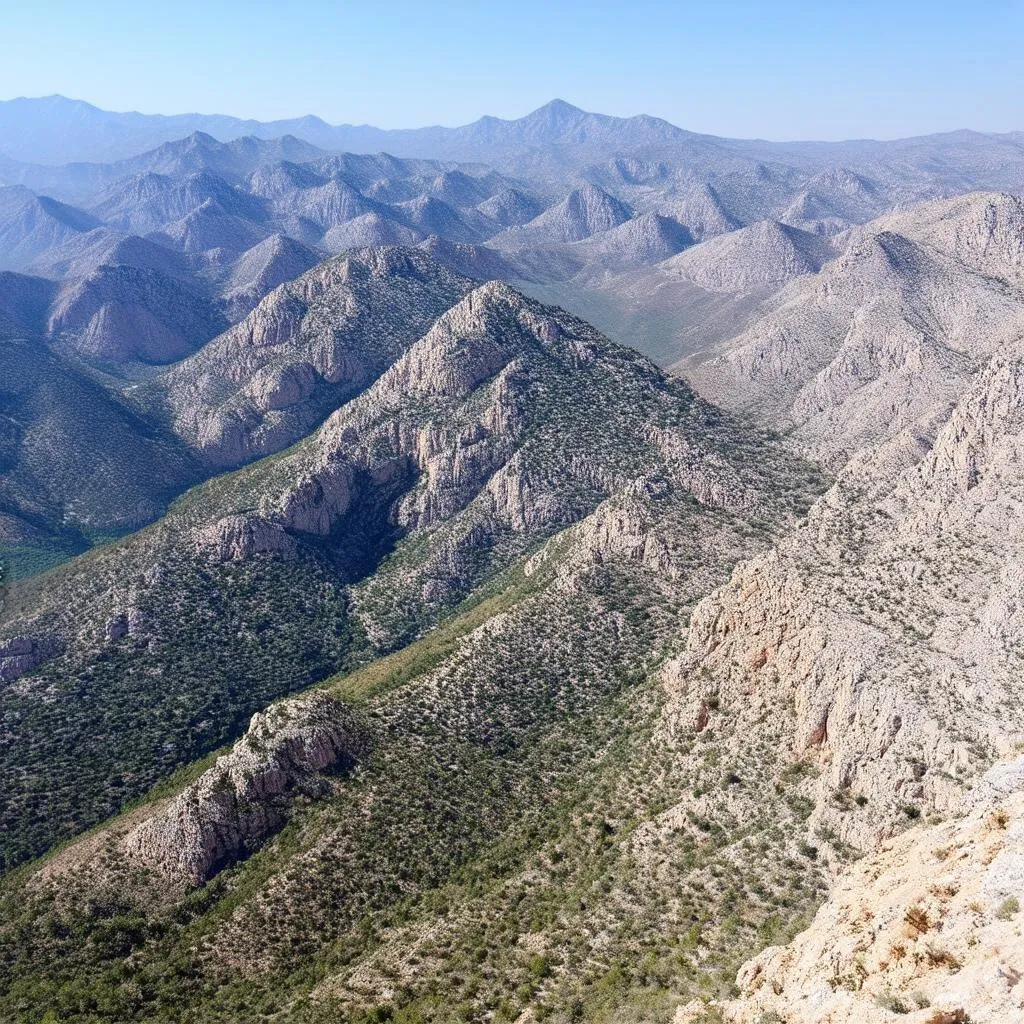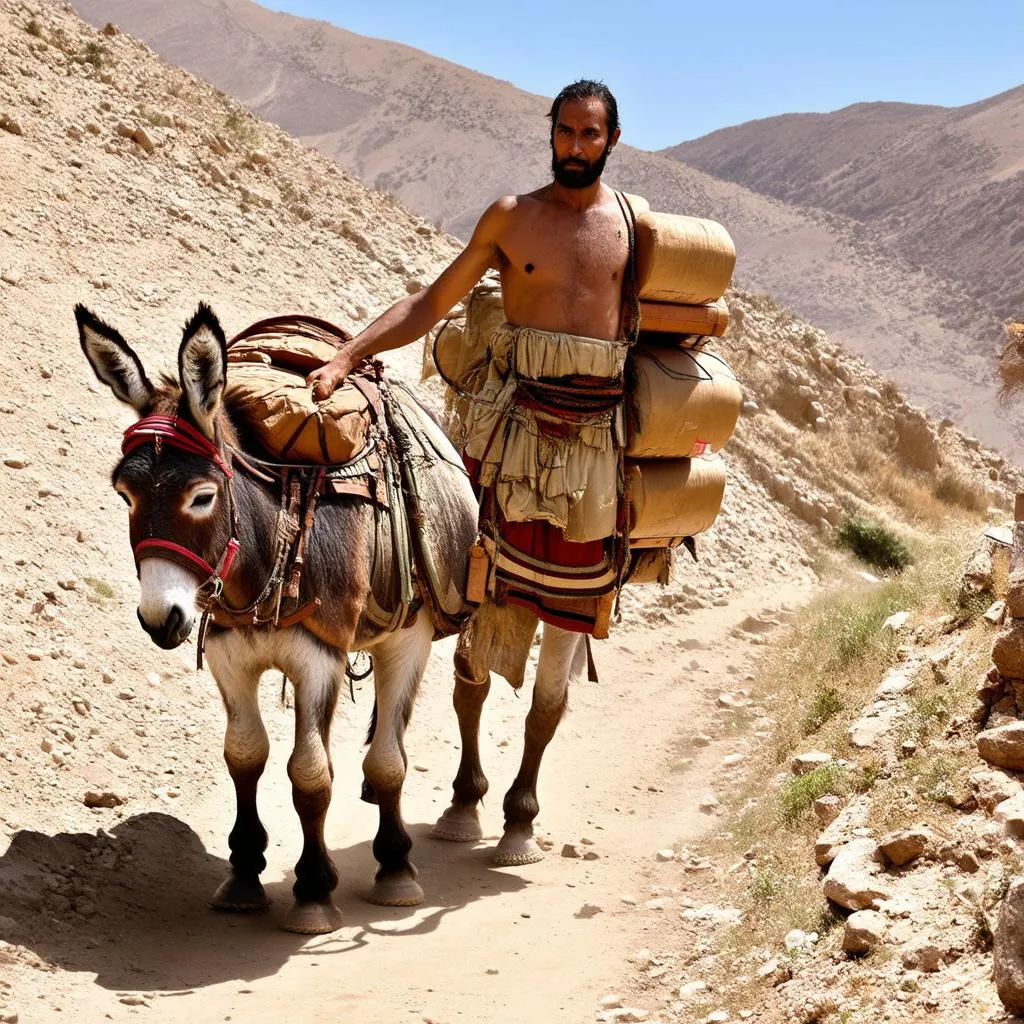Picture this: you’re a merchant in ancient Greece, the land of myths and legends, eager to trade your precious olives and pottery. The sun-drenched islands beckon in the distance, promising lucrative opportunities. But there’s a catch – the journey ahead is fraught with challenges. Why? Because while the ancient Greeks were masters of the sea, navigating the land was a different story altogether.
A Topography of Troubles: The Mountainous Terrain
Imagine traversing a landscape dominated by rugged mountains, deep gorges, and fast-flowing rivers. That was the reality of inland travel in ancient Greece. The Pindus Mountains, often described as the “spine” of Greece, cut through the mainland, creating natural barriers between regions.
 RuggedPindusMountains
RuggedPindusMountains
“The mountainous terrain often isolated communities,” explains Dr. Sophia Nikolaidis, a historian specializing in ancient Greek trade, “making long-distance travel arduous and time-consuming.” This geographical reality had a profound impact on the development of ancient Greek society.
A Tapestry of City-States
The challenging terrain contributed to the rise of independent city-states, each with its own laws, customs, and even dialects. While this fostered a spirit of innovation and competition, it also meant navigating a complex web of alliances and rivalries for those traveling inland.
Beyond the Mountains: Other Roadblocks
While the mountains posed the most significant obstacle, other factors made inland travel and trade difficult in ancient Greece:
- Poor Road Infrastructure: Unlike the Romans who later perfected road building, the ancient Greeks had limited resources and technology to construct and maintain extensive road networks.
- Slow and Costly Transportation: Donkeys and mules were the primary modes of transport for goods, making journeys slow and expensive.
- Threat of Banditry: The rugged terrain also provided ample hiding places for bandits who preyed on travelers, further discouraging inland trade.
 AncientGreekTradeRoute
AncientGreekTradeRoute
Adapting to the Challenges
Despite these obstacles, the ancient Greeks were a resilient and resourceful people. They developed innovative solutions to facilitate trade and travel:
- Coastal Navigation: With a long coastline and strong maritime tradition, the Greeks relied heavily on sea travel for trade and communication. Coastal cities flourished as centers of commerce.
- Local Markets: The challenging terrain led to the development of thriving local markets where communities could exchange goods and services.
- The Significance of Festivals: Religious festivals, often held at geographically central locations, provided opportunities for people from different city-states to gather and engage in trade.
The Oracle of Delphi: A Case in Point
Consider the famous Oracle of Delphi, nestled high in the mountains. Despite its remote location, the oracle attracted travelers, pilgrims, and traders from all corners of the Greek world, showcasing the importance of religious sites as hubs for exchange and interaction.
 AncientGreece
AncientGreece
Echoes of the Past
Traveling through Greece today, one can still appreciate the legacy of its ancient landscape. The winding mountain roads, the scattered villages, and the remnants of ancient trade routes all whisper tales of a time when navigating this land was a true odyssey.
Planning a trip to Greece? Consider exploring the ancient trade routes and immerse yourself in the history that shaped this fascinating country. Visit travelcar.edu.vn for more travel inspiration and tips for your next adventure!
Frequently Asked Questions:
- Did the ancient Greeks have any paved roads? While the Romans are known for their extensive paved roads, the ancient Greeks primarily relied on unpaved roads and paths.
- What goods were traded in ancient Greece? Common trade goods included olive oil, wine, pottery, textiles, metals, and grain.
- How did the geography of Greece impact its culture? The mountainous terrain and scattered islands fostered the development of independent city-states with unique identities and a spirit of competition.
Remember to share your thoughts and travel experiences in the comments below!